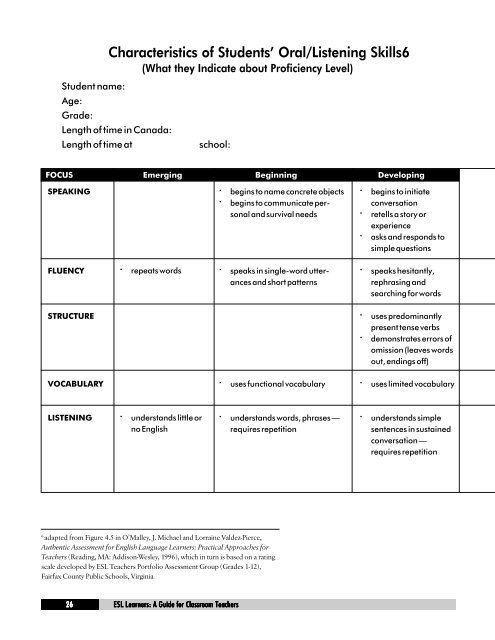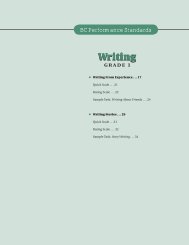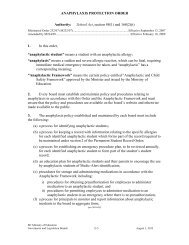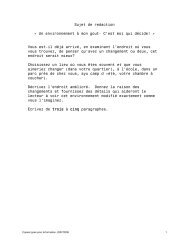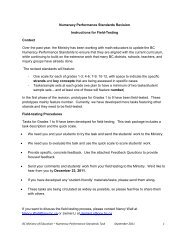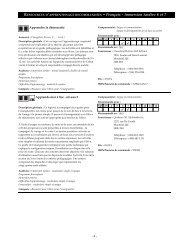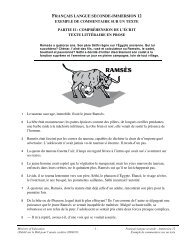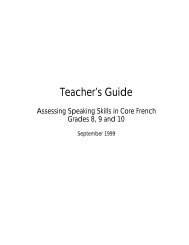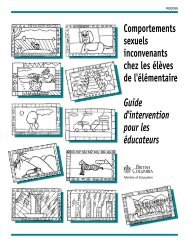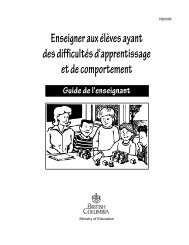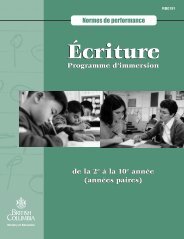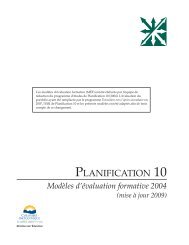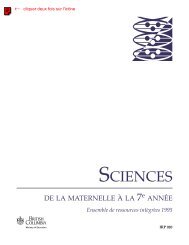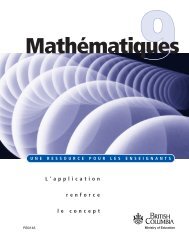A Guide for Classroom Teachers - Education
A Guide for Classroom Teachers - Education
A Guide for Classroom Teachers - Education
You also want an ePaper? Increase the reach of your titles
YUMPU automatically turns print PDFs into web optimized ePapers that Google loves.
Student name:<br />
Age:<br />
Grade:<br />
Length of time in Canada:<br />
Length of time at school:<br />
FOCUS Emerging Beginning Developing<br />
SPEAKING<br />
FLUENCY<br />
STRUCTURE<br />
VOCABULARY<br />
LISTENING<br />
26<br />
26<br />
Characteristics of Students’ Oral/Listening Skills6<br />
(What they Indicate about Proficiency Level)<br />
• repeats words<br />
• understands little or<br />
no English<br />
ESL ESL Learners: Learners: A A <strong>Guide</strong> <strong>Guide</strong> <strong>for</strong> <strong>for</strong> <strong>Classroom</strong> <strong>Classroom</strong> <strong>Teachers</strong><br />
<strong>Teachers</strong><br />
• begins to name concrete objects<br />
• begins to communicate personal<br />
and survival needs<br />
• speaks in single-word utterances<br />
and short patterns<br />
• uses functional vocabulary<br />
6 adapted from Figure 4.5 in O’Malley, J. Michael and Lorraine Valdez-Pierce,<br />
Authentic Assessment <strong>for</strong> English Language Learners: Practical Approaches <strong>for</strong><br />
<strong>Teachers</strong> (Reading, MA: Addison-Wesley, 1996), which in turn is based on a rating<br />
scale developed by ESL <strong>Teachers</strong> Portfolio Assessment Group (Grades 1-12),<br />
Fairfax County Public Schools, Virginia<br />
• understands words, phrases —<br />
requires repetition<br />
• begins to initiate<br />
conversation<br />
• retells a story or<br />
experience<br />
• asks and responds to<br />
simple questions<br />
• speaks hesitantly,<br />
rephrasing and<br />
searching <strong>for</strong> words<br />
• uses predominantly<br />
present tense verbs<br />
• demonstrates errors of<br />
omission (leaves words<br />
out, endings off)<br />
• uses limited vocabulary<br />
• understands simple<br />
sentences in sustained<br />
conversation —<br />
requires repetition


